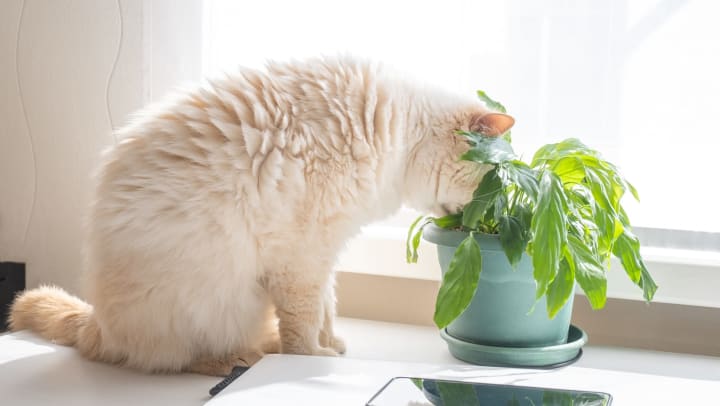If you’re both a pet parent and a plant parent, odds are you’ve walked into a room at some point to find your fauna chewing on your flora. You’re probably aware that some plants are toxic to pets and can cause anything from mild stomach upset, to severe illness, or even death. But did you know that a number of common plants you may have growing inside your house, in a patio container garden, or even received as cut flowers in a bouquet, can be dangerous to your fur babies? Read on and keep your pets safe and healthy by avoiding these five plants in your home.
Tulips & Daffodils
Tulips and daffodils contain toxic lycorine crystal in their flowers and foliage, but it is especially concentrated in the bulbs. Ingestion can cause a spectrum of problems for pets, from vomiting and diarrhea to convulsions and heart problems, depending on the amount of bulb consumed. Try lisianthus instead of daffodils or tulips.
Cyclamen
These beautiful flowering plants are popular as potted indoor color during winter. However Cyclamen foliage, and particularly its tubers or roots, contain irritating triterpenoid saponins which can cause heavy salivation, vomiting, and diarrhea in dogs and cats. If a large amount is ingested, cyclamen can cause heart arrhythmia, seizures, and death. African violets are a safer alternative.
Philodendrons
Philodendrons are a large genus of plants that encompasses many common houseplants such as the trailing hederaceum (also known as P. Scandens, Heartleaf, and Sweetheart), the tropical, pink-shaded erubescens (also known as Pink Princess, Blushing, and Red Leaf), the large and striking Xanadu (also known as P. Winterbourne), and the super-popular epipremnum aureum (or Pothos). The leaves contain calcium oxalate which causes intense oral irritation and potentially vomiting. A non-toxic alternative is a Prayer Plant.
Lilies
Beautiful but very dangerous to cats, lilies are very commonly found in bouquets. The stem, leaves, and flowers of the entire lily family can cause lily toxicity in felines. Within a few days, a cat can suffer kidney failure just from biting into a lily leaf, drinking the water from the vase, or grooming a few grains of pollen off their fur. Some varieties cause heart problems instead. A safer option is a Christmas cactus.
For more information about living your best life with your pets AND your plants, check out the Olympus Auburn Lakes blog.


